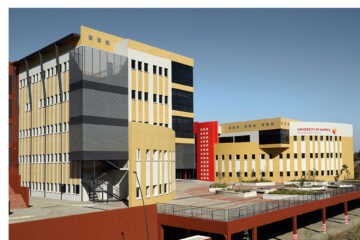There is a silver lining to the country’s current economic state of near collapse. The tenderpreneurs, 10-percenters, inside traders, embezzlers, tax evaders, and loophole exploiters have reduced income streams. There is not enough left in state coffers to feed waste and corruption. The public demand to fulfil existing state obligations and handle the pandemic trumps all. Going broke has made the officials that should have been watching the bottom line, wake up and watch the money better.
Now that the Treasury’s accounts have cobwebs instead of cash, questions are finally being asked about where it all went. Closer looks are being taken at cheques cashed and money spent. The sneak thieves and bad deals are being exposed.
The damage wrought by corrupt feeding frenzies have taken money from the many, to finance the ostentatious lifestyles of the few. The Fishrot saga caused the loss of hundreds of fishing jobs. Meanwhile, those accused (and other unindicted co-conspirators) continued to live their best life.
SME Bank board members have been accused siphoning off cash from the now defunct bank. Allegedly, they used their booty to buy expensive cars or pocket millions. Meanwhile, while disillusioned depositors will only receive 25% of their balances.
Now, we see that the August 26th Textile and Garment Factory may have a former official who helped himself to company money. There is a list of N$14 million in properties and cars purchased by this official. That same August 26 Textile and Garment Factory was accused by the worker’s union of closing and retrenching nearly 100 workers. This action was because of an alleged theft of N$25,7 million from the company.
We have the image of a baker providing 100 loaves of bread for 100 starving people so that each person gets one. Then, 10 entitled and greedy thieves (most of whom work for the baker) take five loaves each. They have no regard for the other 90 starving people who must now feed themselves with the 50 remaining loaves. Those in charge of making sure the loaves are equally distributed have been given bread crumbs from each of the entitled thieves as a bribe.
When the flour runs out, the baker finally hears cries from people who have never received bread. But, the bread maker can only produce 50 loaves instead of 100. Only now does the baker ask for an accounting of where the loaves have been going. The thieves’ stealing is exposed and those who are hungry are now angry.
We constantly read about cases where entitled elites have been cheating the government for years. Many people around them know of this wrong-doing. And yet, no one says or does a thing about it. Only when an outside factor comes into play, is the entire thing exposed.
Now that the unexpected pandemic is squeezing Namibia dry, the thieves are enduring a ‘pay cut.’ They are ready to expose their fellow thieves who are still getting booty while they are not. The scramble for the continuation of the illicit flow of illegal gains is on. The government, facing the spectre of economic collapse, is watching things more carefully. They should be able to uncover avenues of money leakage and stop it.
The new normal is being shaped now as the State of Emergency winds down (no extensions please). There must be greater vigilance from those monitoring procurement. Any expenditure of state funds (whether in an SOE or a ministry) must be watched.
Finding where the money went, will uncover waste and theft alongside legitimate expenditure. Let us use this pandemic and fiscal deficit pressure to close-off the leakages of state funds. Civil servants responsible for proper use of state funds or given state assets for use must be held accountable.
For example: new vehicles are being purchased for police departments. Most stations cannot respond to citizens in need due to insufficient transportation available. Those driving the new cars and wreck them, must have their salaries reduced to pay a portion of the replacement or repair costs. Making civil and public servants financially responsible for damaged state property (or state money that goes missing) is a game-changer. It can mean better care for those assets. It would also offset a portion of the replacement costs.
When you are broke, you watch your expenses closely. Losses through waste or corruption are unaffordable.



